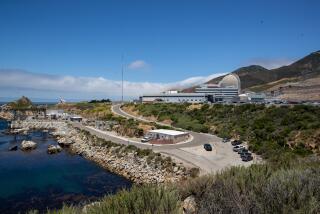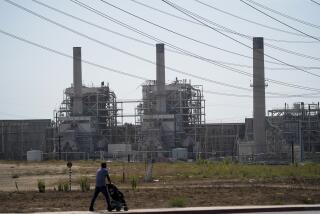Defensible decisions
- Share via
CONGRESS KNEW PAROCHIALISM would trump national security in deciding which military bases to close after the Cold War, but it also understood the U.S. had too many Army, Navy, Marine and Air Force installations. So it created a nine-member commission to rule on Defense Department recommendations about what should go and what should stay. This week, as in previous rounds, the commission proved its worth.
Politicians will always lobby decision-makers to keep bases open; the facilities provide economic benefits to communities and votes for officeholders. But letting a commission handle the tough vote reduces the influence of politics, because unlike employees of the Pentagon, the commissioners don’t depend on Congress for appropriations or approval of promotions. Several commissioners in recent hearings have questioned the Pentagon’s estimates of the amount of money that would be saved by closing the recommended facilities.
The Defense Base Closure and Realignment Commission on Wednesday rejected a Defense Department recommendation to close the Navy submarine base at Groton, Conn., as well as the naval shipyard at Kittery, Maine. The Pentagon’s suggestion to close the sub base and move 16 submarines to bases in Virginia and Georgia was on shaky ground. Groton is home to a major builder of nuclear-powered submarines; the facilities allow sailors to train at the submarine school on the base and spend as long as a year on a sub being built, learning its systems in detail.
On Thursday, the commission sided with the Pentagon and voted to close Walter Reed Army Medical Center in Washington, D.C., where presidents and injured troops have been treated for nearly a century. The Defense Department said the hospital was old and underused. It proposed consolidating operations at Bethesda Naval Hospital in Maryland and building a new military hospital nearby.
Southern California got a pass when the Los Angeles Air Force Base was excluded from the Pentagon’s hit list. That was understandable, considering the scientific and engineering expertise of the 4,500 employees at the El Segundo facility. And there was good news for Northern California on Thursday when the commission spared the Defense Language Institute and the Naval Postgraduate School in Monterey.
President Bush will get the commission’s recommendations by Sept. 8. He can send the list back to the commission -- which is unlikely -- or hand it to Congress by Nov. 7. Then it’s up to Congress to vote yes or no on the entire list, with no ability to add or subtract installations. That allows a national sharing of the pain and gives legislators the chance to blame the commission, a good layer of insulation from the wrath of their constituents.
More to Read
Get the L.A. Times Politics newsletter
Deeply reported insights into legislation, politics and policy from Sacramento, Washington and beyond. In your inbox three times per week.
You may occasionally receive promotional content from the Los Angeles Times.










